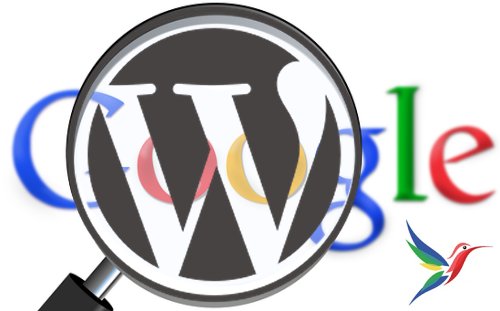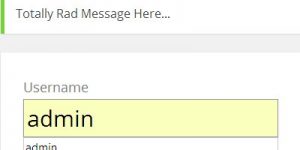Comment on WordPress SEO Tutorial by SEO Dave.

Information from the PodCast:
All those people doing, for lack of a better word, over optimization or overly SEO – versus those making great content and great site. We are trying to make GoogleBot smarter, make our relevance better, and we are also looking for those who abuse it, like too many keywords on a page, or exchange way too many links or go well beyond what you normally expect. We have several engineers on my team working on this right now.
Source file if the above fails : http://audio.sxsw.com/2012/podcasts/10-RAD-Dear_Google_and_Bing_Help_Me_Rank_Better.mp3
Matt Cutts suggested they are going to roll out an over SEO’d algorithm within weeks, but listen to what he said (highlighted above).
like too many keywords on a page – AKA keyword lists, spammy use of keywords etc… I always write articles with SEO in mind, I never check keyword density (waste of time), if it reads OK I keep it, if it reads SPAMMY I change it.
There’s also the very basic question what is “too many keywords”?
I think we can agree under almost all circumstances a 90% keyword density for a single keyword is way to high, but what about 20%, 10%, 5%, 2%?
What about a page with a large amount of text, would it be spammy to keep a density above 5% on a 1,000 word article, keyword used 50 times?
What about a 100 word article, keyword used 5 times?
Absolute keyword density is irrelevant, I very much doubt any major search engine looks at keyword density per se.
If you create content that is poorly SEO’d, check the keyword density of the SERPs the page is targeting and add keywords to match whatever keyword density you think is perfect you run the risk of going SPAMMY or under SEOing if you push the density down on a low content page.
Take this comment, I’ve given it the title “Matt Cutts – Google Over SEO Optimized Ranking Algorithm” which if this was a stand alone article would suggest I’m targeting keywords/SERPs:
Matt Cutts, Google, Over SEO Optimized, Ranking Algorithm
And various derivatives: I’m not targeting anything, couldn’t think of a good title that would generate traffic on the Stallion SEO Super Comments page :-)
Ignoring the few lines above I’ve used the phrase “Matt Cutts” only once, if I’m serious about gaining Matt Cutts SERPs I’d ideally need to do more. If this comment truly was about Matt Cutts (it isn’t really) I’d ideally use his name a heck of a lot more than once in the title and once in the body content. When writing with SEO in mind this isn’t difficult, where I wrote “use his name” above changing to “use Matt Cutts name” would add another instance of the phrase without being SPAMMY. However, most webmasters don’t write this way and those who are lazy will use grey/blackhat SEO techniques like adding keyword lists at the base of the article, if I added a keyword list of Matt Cutts relevant phrase like this:
Matt Cutts duplicate content, Matt Cutts 30 days, Matt Cutts sopa etc...
This would clearly be SEO SPAM and if I over did it enough to push a poorly SEO’d article to have it’s keyword density for Matt Cutts relatively high I’m confident it wouldn’t pass a manual review. Currently I don’t think Google have a ranking algorithm, but maybe this is what they are working on (would make sense).
Note how I used Ranking above instead of just Algorithm, giving us “Ranking Algorithm” which is a match with the title without having to use blackhat SEO techniques.
Stallion 6.2 won’t be hit by this sort of Google algorithm change, Stallion doesn’t do keyword lists or anything like that.
exchange way too many links – AKA excessive link building, buying links. For years Google has been improving how it deals with SEO link SPAM. It’s difficult to determine exactly where they are right now. What’s clear is excessive link building like adding thousands of links with the same keyword rich anchor text and buying links is very risky, where that SEO grey line is I don’t know so tend on the side of caution.
For a domain you don’t want to risk, never buy links that pass link benefit. Never use link SPAM like adding SPAMMY comments to blogs, forums etc… a SPAMMY link would be where a webmaster creates thousands of comments etc… on blogs and forums just for the links, the links will tend to have the same anchor text and be added in an automated way. Commenting on a blog and adding a link to your author name isn’t SPAM, not that on most blogs it matters, they tend to be nofollow links.
The grey area is link exchanges and other ways to generate backlinks. I own 100 domains, would be dead easy to add a link farm to all my domains inter linking them all together, or I could add a sitewide link from all 100 domains to this sites home page with the anchor text “WordPress SEO Theme” and if it wasn’t gaming the search engines would probably push it to number 1 in Google within a year of adding the links (links don’t pass full SEO benefit for about a year).
This domain is only one year old and is in a niche that is hard to generate natural links for, so adding 100 domains worth of sitewide links would obviously be excessive link building and easy for Google to spot via it’s ranking algo. I tested this years ago and the domain was penalized, since we can guarantee the algo is better today we have to be careful linking our own sites together. Instead I add links from my other relevant sites and a few others (less is more).
Reciprocal links pretty much cancel themselves out and I see no evidence Google is cracking down on them. Webmasters generally don’t trade PR3 links for PR7, tends to be same PR roughly. If I send you a PR4 link and you send me a PR4 link overall there’s very little link benefit (PR) passed between the two sites. One domain will gain a little more PR than the other, but in the scheme of things it’s irrelevant. The benefit of having a link from another domain is important, but again with reciprocal linking the amount passed by a single link is small. To make a real difference a site needs hundreds of links, I’ve been working as an SEO for around a decade and haven’t setup hundreds of reciprocal links, they are hard work! I bet you haven’t been able to setup 50 reciprocal links for one domain?
Google does’t have to penalize sites for reciprocal linking.
I expect when Google rolls out the new Over SEO optimized ranking algorithm it will have little impact on my network of sites. I’ve never had a Google algorithm update have a major negative impact on my network. Some sites go up, some go down. but nothing drastic in the down direction. Had a few algo updates increase traffic overall.
David


More Comments by SEO Dave
WordPress SEO Techniques
How to Noindex Paged WordPress Categories and Tags
Before I explain how to noindex paged categories and tags, first going to cover some basic SEO misunderstandings.
If you use a WordPress theme like the Stallion SEO Theme your tags, categories and other WordPress archives will use post excerpts. Have …
Continue Reading WordPress SEO Guide
WordPress SEO Techniques
WhiteHat SEO PR Sculpting : WordPress SEO of Categories Siloing
1,200+ posts in only 8 categories averages at 150 posts per category IF you have them spread evenly (which you won’t).
With the standard 10 posts per category that’s 15 pages deep, unless you have a high PR site (loads of …
Continue Reading WordPress SEO Guide
WordPress SEO Techniques
Whitehat SEO PR Sculpting : Delete WordPress Tags and Categories with NO Search Engine Traffic
If some WordPress tags get search engine traffic keep them and keep the same layout, but delete the tags that get no traffic.
This way your tags with traffic loose no internal backlinks and you waste no link benefit on tags …
Continue Reading WordPress SEO Guide
WordPress SEO Techniques
WordPress SEO Categories and Tags Optimization
I don’t use WordPress Tags because in structure they are the same as Categories.
A lot of webmasters overload their sites with Tags/Categories which means they need more link juice to power their sites SEO. You want most of your SEO …
Continue Reading WordPress SEO Guide
WordPress SEO Techniques
Google Sitelinks and Meta Descriptions Tag
For both questions I’ve not done anything special to achieve this, left it to Google to automatically set the meta description and the Google sitelinks. So what you see is what Google thinks are the best meta descriptions and sitelinks.
Stallion …
Continue Reading WordPress SEO Guide
WordPress SEO Techniques
SEO Impact of Font Sizes
That requires editing CSS files, each colour scheme and layout have their own CSS files, one for the colour scheme and one for the layout, the current two files your site uses are
/wp-content/themes/stallion-seo-theme/colors/layout-310r.css (layout)
/wp-content/themes/stallion-seo-theme/colors/style-brown.css (colour scheme)
So those are the two …
Continue Reading WordPress SEO Guide
WordPress SEO Techniques
WordPress Category Excerpts
The WordPress excerpt replaces the default snippet of text you see, the links to the post remain. So just a way to make your categories unique/SEO’d.
I’m sure there are ways to replace the category with custom content and a link …
Continue Reading WordPress SEO Guide
WordPress SEO Techniques
SEO of WordPress Categories
WordPress categories can gain SERPs in their own right, I link to my categories all the time from relevant pages. What I link to/from is based on what the content I’m linking from, regularly link directly to categories on other …
Continue Reading WordPress SEO Guide
WordPress SEO Techniques
WordPress Static Pages
If you want articles not to show on the home page you have the option of using WordPress Static Pages (“Pages >> Add New” instead of “Posts >> Add New”).
Static Pages (like an About Page) are only added to the …
Continue Reading WordPress SEO Guide
WordPress SEO Techniques
Social Media Metrics and Over SEO Optimized Sites
Which Matt Cutts talk was you listening to?
I have to admit I don’t like using social media for promotion, to date it’s been severely disappointing, I’ve got thousands of Twitter followers and auto Tweet many sites, have around 2,500 Google+ …
Continue Reading WordPress SEO Guide
WordPress SEO Techniques
WordPress Themes and Search Engine Optimization of Headers, H1, H2, H3, H4
There’s no hard rules on the exact number and ratio of headers to use because the larger an article more scope for header usage, you wouldn’t add 10 different headers (various H*s) to a 250 word post for example, but …
Continue Reading WordPress SEO Guide
WordPress SEO Techniques
WordPress SEO Cache Plugins : WP Super Cache vs W3 Total Cache
WordPress Cache Plugins are a must use WordPress SEO plugins for most sites and which one WP Super Cache vs W3 Total Cache is a very good question and I’m afraid I don’t know the answer :-)
I use WP Super …
Continue Reading WordPress SEO Guide